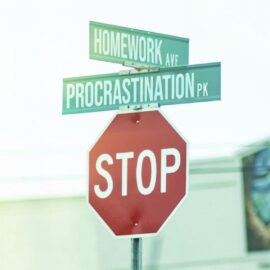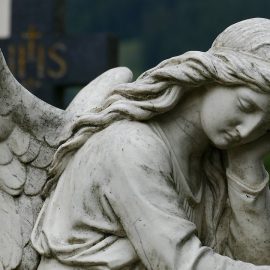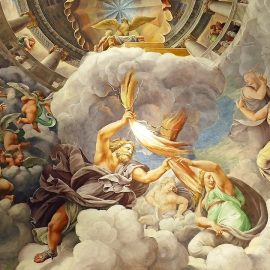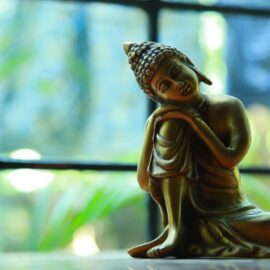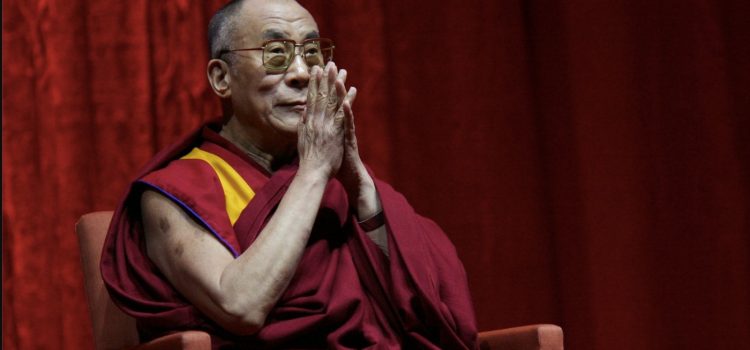
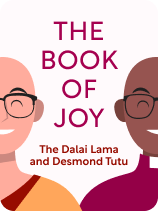
This article is an excerpt from the Shortform book guide to "The Book of Joy" by The Dalai Lama, Desmond Tutu, and Douglas Abrams. Shortform has the world's best summaries and analyses of books you should be reading.
Like this article? Sign up for a free trial here.
What does the Dalai Lama say about forgiveness? Does forgiveness excuse horrible actions?
In The Book of Joy, Desmond Tutu and the Dalai Lama claim forgiveness is essential for growing as a person. At the same time, they emphasize that forgiveness doesn’t automatically mean condoning harmful actions. Forgiving is simply choosing not to exact revenge.
Let’s look at how we can choose to move forward thanks to the lessons of the Dalai Lama, forgiveness’ impact on us, and how you can break the cycle of suffering.
Choosing Forgiveness
Sometimes, the things that are hardest to accept are the actions of other people. When you accept reality, you’re more likely to practice forgiveness—the Dalai Lama says it’s the deliberate choice to let go of feelings of anger or vengeance toward a person or people who have harmed you.
(Shortform note: Psychologists emphasize that forgiveness is often a long and difficult process, but they offer some strategies that can make it easier. First, be honest with yourself. To forgive someone, you must first acknowledge your own pain and how it’s affected your life. Next, acknowledge your vulnerability. Anger and resentment often come from a desire to protect yourself, so acknowledging your own frailty can make forgiveness easier. Finally, be humble, and remember that we’re all capable of doing harm—and doing better.)
According to the Dalai Lama, forgiveness is a powerful practice because it breaks cycles of suffering. If you’re harmed and you choose anger or vengeance, then you’ve chosen to respond to harm by causing more harm; but if you choose forgiveness, you can prevent further harm from happening. For example, if someone says something cruel to you and you say something cruel in reply, then you both continue to suffer. But if you forgive them and offer compassion, you have the opportunity to transform the interaction and interrupt the ongoing suffering.
(Shortform note: Holding onto resentment instead of practicing forgiveness can also cause physical suffering. Studies have shown that people who hold onto resentment and anger are more likely to experience severe depression or post-traumatic stress disorder, or be diagnosed with high blood pressure or diabetes.)
Yet Tutu and the Dalai Lama emphasize that forgiveness is not the same as condoning harmful actions. Just because you choose not to exact revenge for harm done to you doesn’t mean you approve of the person’s actions. The Dalai Lama explains that forgiveness requires that you distinguish between the person and their action. You can condemn someone’s actions without condemning the person, maintaining compassion for the person who took the action.
| Restorative Justice: A Different Way to Address Harm There’s a growing movement to put forgiveness into action at a community-wide level using the model of restorative justice. Restorative justice is a philosophy and approach to addressing harm that emphasizes the importance of repairing harm instead of focusing only on punishment or retribution. This philosophy is based on the principles of respect, responsibility, and relationship-building. It aims to empower individuals and communities to take ownership of the harm caused and work together to find solutions that promote healing, accountability, and reconciliation Restorative justice processes typically involve bringing together the people affected by the incident, including the victim, the offender, and anyone else involved, to collectively determine the best way to repair the harm caused and move forward. This can sometimes involve an apology, restitution, community service, or a different form of making amends. Restorative justice has been applied in a range of settings, including schools, workplaces, and the criminal justice system. |

———End of Preview———
Like what you just read? Read the rest of the world's best book summary and analysis of The Dalai Lama, Desmond Tutu, and Douglas Abrams's "The Book of Joy" at Shortform.
Here's what you'll find in our full The Book of Joy summary:
- Archbishop Desmond Tutu and His Holiness the Dalai Lama's guide to joy
- What joy actually is and why it matters so much
- How to find joy exactly where you are, no matter what your life looks like


